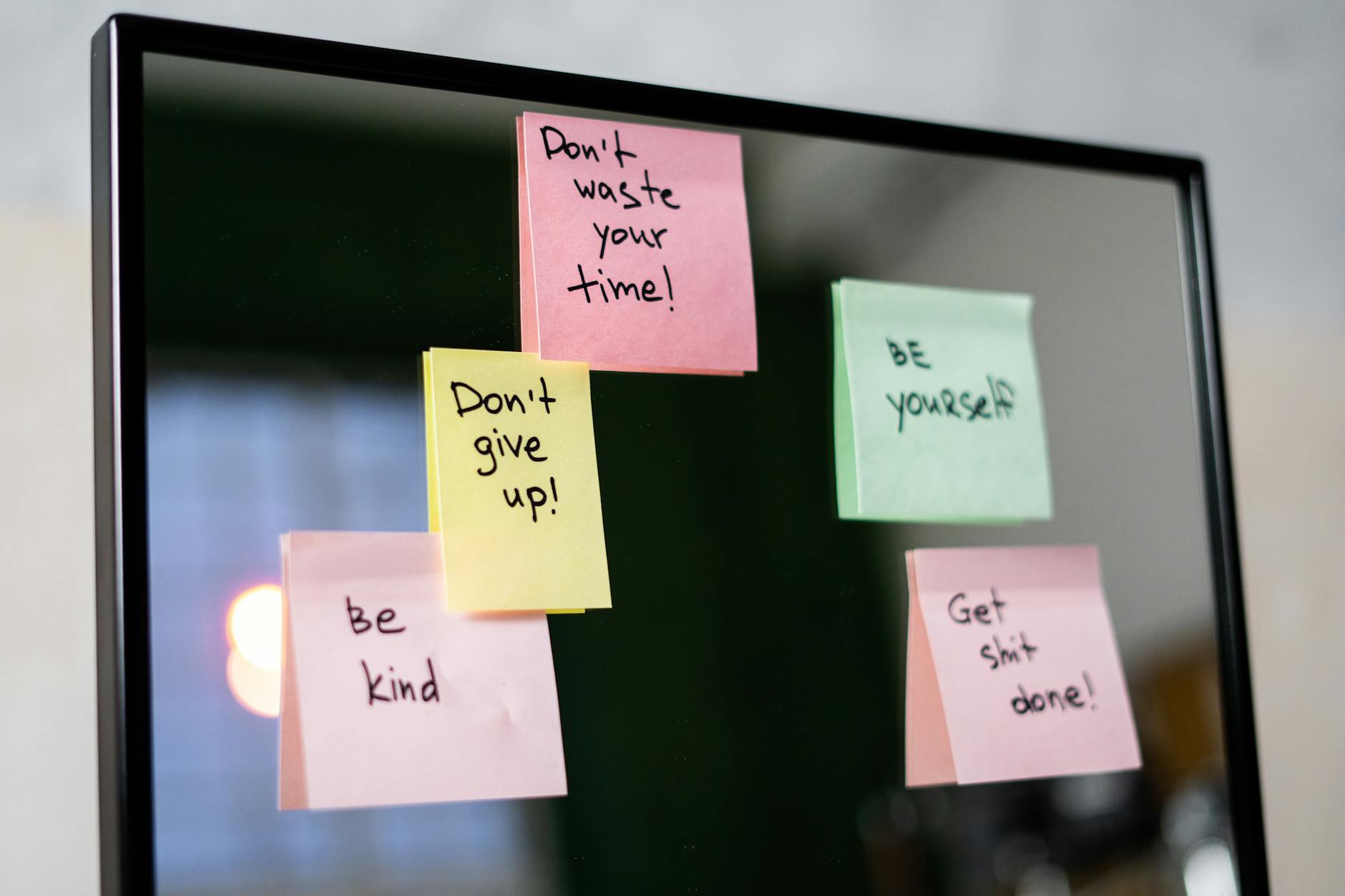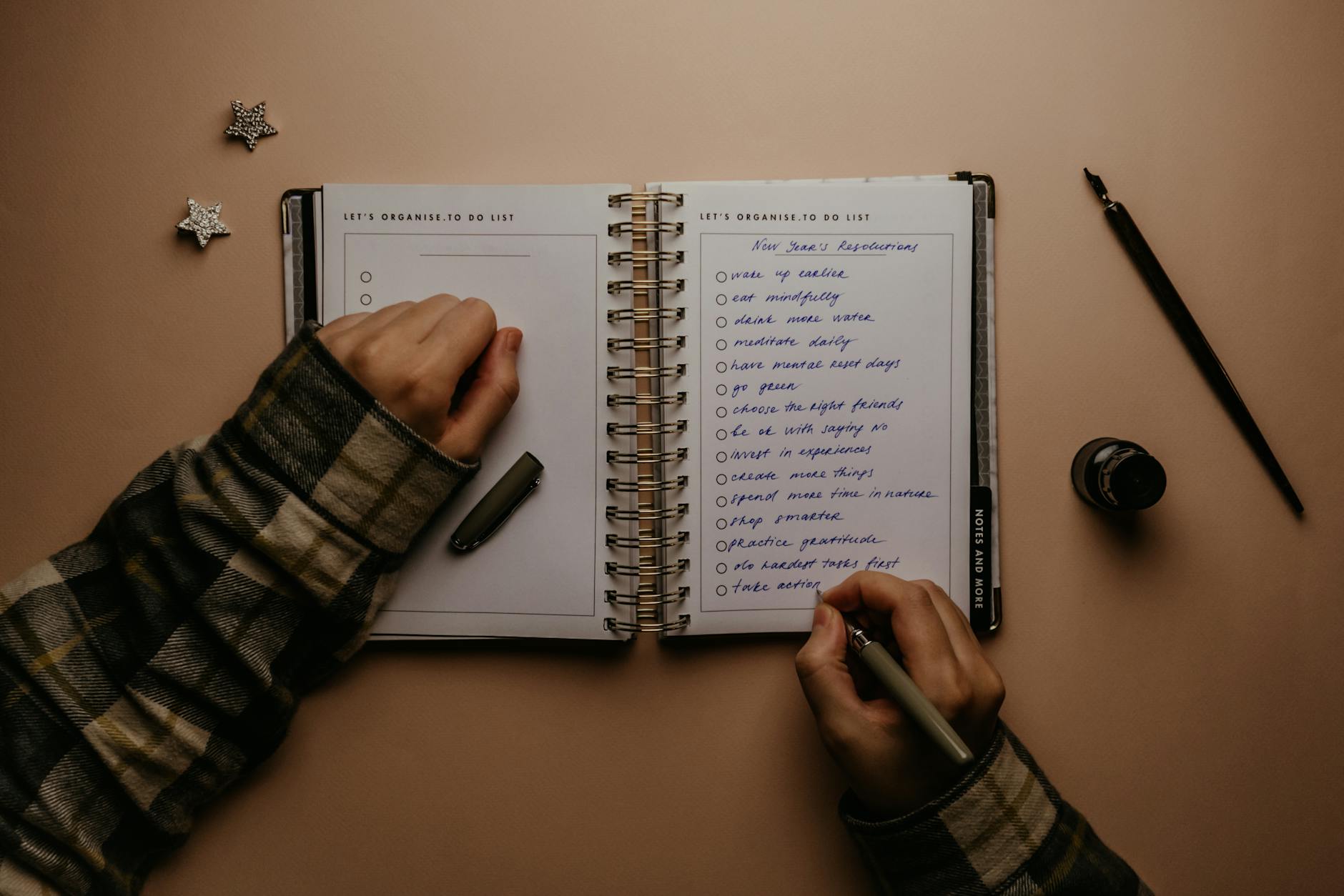Nobody is born confident, but it’s a skill we can learn with deliberate practice. Whether you’re nervous about speaking up in a group, trying something new, or simply feeling unsure in life, you’re not alone. Through this article we’ll explore simple, easy to follow steps to help you build confidence in yourself and navigate life’s challenges with ease. There’s even a 30-day Confidence Building Plan for you to get started, so let’s dive in!
1. What Is Confidence?
Confidence isn’t just about feeling good. One can think of confidence as a blend of resilience, assertiveness, and self-respect. It’s a mindset that helps you feel sure of yourself, face challenges, make decisions, and believe in your abilities. Without these qualities, it’s easy to avoid trying new things or be afraid of failure.
Before you start on your journey to build confidence, start by knowing yourself first. Identify your strengths and weaknesses, list down your values, and gain an understanding of what truly motivates you. Developing self-awareness will allow you to approach life with authenticity and assurance.

A common myth is that confident people never doubt themselves, but even the strongest people have struggles. What makes them different is their ability to keep going, using their past successes to help them, along with the strength they’ve built over time. Warren Buffet, one of the most successful investors in the world, struggled with public speaking and admitted that he would become physically sick just thinking about speaking in front of a crowd. To overcome this, he enrolled in a public speaking course and worked hard to improve his public speaking skills.
2. Acknowledge Your Achievements
Recognize the things you’ve done well, even if they seem small to you. Reflecting on your successes boosts your confidence more than getting praise from others. Take time to review what you’ve achieved – whether it’s personal goals, work successes, or a tough situation you handled. By acknowledging these wins, you remind yourself that you’re capable and can handle challenges in life.

Be careful not to fall into the trap of trying to be perfect. True confidence doesn’t come from doing everything flawlessly. You build confidence when you recognize your efforts and celebrate the progress you make. Each small win adds up over time, helping you achieve bigger successes in the future.
Keep a journal or a digital record of your accomplishments. On days when you doubt yourself, look back at this list to remind yourself of how much you’ve grown. This can also help motivate you when setting new goals or when you need inspiration during tough times.
3. Take Care Of Your Physical And Mental Health
Your physical health can strongly affect how you feel mentally, which can influence your confidence. Regular exercise helps keep your mind and body connected. When you exercise, your body releases endorphins, which are hormones that boost your mood and make you feel accomplished. Feeling physically strong and fit often leads to feeling stronger mentally as well.

Not getting enough sleep and eating unhealthy foods can lower your mood, energy, and how you feel about yourself. Try to sleep for 7-9 hours each night and eat foods that give you energy. When you’re well-rested and eat healthy meals, you’ll think more clearly and have better control over your emotions, making you feel more confident and in charge of your life.
Confidence and resilience go hand in hand, because in order to build confidence, you also need to learn how to recover from setbacks. Practicing mindfulness meditation can help you stay calm and perform better under stress. In addition, you can build emotional strength by facing challenges, learning from them, and growing as you overcome difficulties.
Learning a new skill takes time, so don’t rush your progress. Start with small steps and focus on building healthy habits. For example, replace a sugary snack with something healthier, and aim for 20 minutes of exercise every day. Over time, these small changes will add up and create better routines, making you feel more energized and capable.
4. Practice Positive Self-Talk To Build Confidence
When things don’t go our way, it’s easy for us to fall into a downward spiral of self-doubt. We assume we’re not good enough or that we’ll fail before we even get started. This is a huge problem because our thoughts guide our actions and we end up sabotaging our efforts to make this a reality. Reframe these negative thoughts by asking yourself, “What if it works out?” or “What if I’m successful this time.?” You can also try replacing “I can’t” with “I’ll give it a try.”
Use positive affirmations like “I am enough” or “I can succeed” every day to create a more positive mindset. These simple phrases are powerful tools that can help change how you think and help you build confidence in yourself. By repeating them regularly, you can gradually shift your thought process and become better at facing challenges with more confidence.

Visualization is a strong tool for building confidence, and many top athletes use it to succeed. Imagine yourself in a tough situation and picture yourself doing well. Use all your senses to make the image as real and as detailed as possible. This helps create a positive self-image, which boosts your confidence. By mentally practicing these situations, your brain gets ready for real-life challenges, making it easier to handle them when they come.
When you notice yourself thinking negatively, take a deep breath, stop and replace those thoughts with something positive and helpful. Use a statement like “I’m doing my best, and that’s enough,” or “I’m learning and growing; I’m not a failure.” This small change can stop you from getting caught in a cycle of negative thinking.
5. Surround Yourself With Positive Influences
Build a network of supportive and encouraging people, because your environment has a huge effect on your confidence. A positive group of friends will lift your mood and boost your self-esteem by helping you to look on the bright side of things. Plus, when friends and coworkers give you positive feedback, it helps you see the good in yourself.

When trying to build confidence, limit your time with toxic people. Those who constantly complain or bring negativity can drain your energy and make things harder for you. Be careful about who you spend time with, because people who don’t make positive changes in their own lives can make you feel bad and hurt your efforts to grow.
Find a role model or a mentor who can guide you to become more confident. Connect with people who inspire you and make an effort to learn from them. Use their support, wisdom, and experience to fuel your growth and challenge yourself to achieve your true potential just like they did. You’ll be able to build confidence much faster when you do this.
6. Step Out Of Your Comfort Zone
The quickest way to build confidence is by taking action, not by sitting on the sidelines. Take small risks everyday to step outside of your comfort zone, because that is how you’ll get big rewards. Try something new, speak up in meetings, or start a project you’ve been avoiding for a long time. Every time you do something that makes you uncomfortable, you push your boundaries and improve your confidence.

Fear of failure kills more dreams than actual failure. Re-frame your thoughts on failure, and understand that mistakes aren’t a reflection of your true worth. Instead, they are valuable learning opportunities that help you grow and build confidence. When you accept failure as a part of life, it becomes easier to take risks and deal with uncertainty.
Good things take time, and trying to build confidence is no different. Most people underestimate the power of incremental growth, but confidence is built in small, deliberate steps. Instead of trying to go for huge changes, start with small challenges, like trying a new hobby or learning a new skill. This will prevent you from feeling overwhelmed and build your way up to bigger goals. With each success, your belief in your capabilities will see a boost.
7. Set Clear, Achievable Goals To Build Confidence
SMART goals are a way to set clear and helpful targets for yourself. SMART stands for Specific, Measurable, Achievable, Relevant, and Time-bound. When your goals are well-defined, it’s easier to see how you’re doing and it also helps you to celebrate small successes along the way. This will help you feel more confident as you work toward your bigger goals.

It is fairly common for people to overestimate their capabilities and set large goals that can feel overwhelming. People tend to set big goals for themselves, and when they don’t see immediate results, they lose hope and quit. However, if you break those big goals into smaller, easier steps, you can achieve them over time. Each small step you take will help you feel more confident about reaching your bigger goal.
If something isn’t working, change your strategy instead of thinking you’ve failed. Being flexible is important because there are many ways to reach the same goal. If you need to, adjust your plan, but don’t give up on your goals entirely. Learning to deal with challenges and setbacks is important when you’re trying to build confidence because it makes you stronger and shows that you can handle changes and uncertainties.
Here’s Your 30-Day Confidence-Building Plan To Kick-start your Journey
Week 1: Positive Self-Talk
Goal: Build a strong foundation through positive self-talk and mindset shifts.
Day 1-3: Identify negative self-talk patterns. Write down common negative thoughts and replace them with positive alternatives.
Day 4-7: Start each day with three affirmations, focusing on your strengths. Example: “I am capable of learning new things.”
Daily Action: Track your self-talk, writing down one negative thought you had and how you replaced it.
Week 2: Try a New Skill
Goal: Develop confidence by stepping out of your comfort zone and learning a new skill.
Day 8-10: Choose a new skill to learn (e.g., learning a few phrases in another language, or trying a new workout).
Day 11-14: Practice this skill daily. Focus on progress, not perfection.
Daily Action: Reflect on the new skill you’re learning and write down one thing you’re proud of each day.
Week 3: Conquer a Fear
Goal: Overcome a fear by confronting it in small, manageable steps.
Day 15-17: Identify a fear that has been holding you back (e.g., public speaking or meeting new people).
Day 18-21: Break this fear into smaller tasks. For example, if you fear public speaking, start by speaking in front of a mirror, then to a friend or family member.
Daily Action: Take one small action toward confronting your fear, and journal about the experience.
Week 4: Practice Self-Compassion & Reflection
Goal: Develop self-compassion and reflect on progress.
Day 22-24: Practice self-compassion by being kind to yourself during setbacks. Avoid harsh self-criticism and write a positive note to yourself each day.
Day 25-28: Reflect on your journey. What have you learned about yourself? Where have you improved?
Day 29-30: Celebrate your growth. Reward yourself for your progress, whether big or small.
Daily Action: Write one thing you’re proud of for that day and what you’ve learned.
8. Focus On Body Language Cues
Studies have shown that body language can affect how confident you feel and how others see you. Using power poses, like standing up tall with your shoulders back, can help you feel more confident right away. If you practice this often, it can make you feel more in control and assertive.

Confident people also make eye contact, which shows that they are sure of themselves. If you’re shy, it might be hard to do this, but it gets easier with practice. Try to look people in the eye when you talk to them, even if it feels a little awkward at first. If you can’t look directly into their eyes, you can focus on the space between their eyes instead.
Smiling helps your brain release chemicals called serotonin and dopamine, which make you feel good. Just by smiling, you can quickly boost your mood and come across as friendlier and more confident to others. Smiling is also a fast way to de-escalate a situation and take control, which is something confident people do.
9. Handle Criticism Positively
Criticism is often seen as an accusation, which makes it hard for us to use it to build confidence. But if we handle it well, criticism can help us grow. Instead of getting defensive, try to listen carefully and understand the feedback. Think about whether there’s any truth in what is being said and what you can learn from it, without seeing it as a reflection of your value as a person.

Just because someone shares their opinion about your work doesn’t mean they are judging you as a person. It’s important to separate criticism from your self-worth because how you feel about yourself matters more than what others think. Understanding this difference is key to keeping your confidence, even when you get negative feedback.
Even if someone gives you harsh criticism, it’s a good idea to thank them for their feedback. You don’t have to agree with what they say, but responding politely is important because it shows that you are mature and can handle tough situations. By thanking them, you can also think about their point of view without taking it personally. This will also help you stay calm and open-minded, which can lead to learning something new and improving yourself.
10. Just Take Action To Build Confidence
“A ship in a harbor is safe but that is not what ships are built for.”
John A. Shedd
When you take action, even if it is very small, you shift your mindset from doubt to progress. You can build confidence by doing more because sitting on the sidelines and overthinking disrupts your ability to take decisions. You can keep waiting for the perfect moment, but that moment will never arrive. So start by taking action, and make corrections along the way.

Identify one small action you can take today that will move you closer to your goal. You don’t have to take huge strides, but focus on taking only one small step everyday in the right direction, without worrying about failure. Whether it’s finishing an assignment or making a difficult phone call, each step that you take will reinforce your ability to reach your goals.
Once you start taking action, you’ll build momentum that’ll help you keep moving forward. As you achieve small wins, your confidence will grow, making it easier for you to tackle bigger challenges. When you look back at what you’ve accomplished, you’ll see that tasks that once felt impossible are now much easier to handle. Each small step you take helps you improve, and soon you’ll feel ready to take on even more difficult tasks.
Final Thoughts
Confidence is like a muscle—the more you use it, the stronger it gets. You can build your confidence by celebrating small victories, taking care of your body, and facing challenges. Every step you take helps you become the most confident version of yourself. Remember, this change won’t happen overnight, but if you keep working at it, you’ll find it easier to handle life’s ups and downs. So keep pushing forward—you can do it!

1 thought on “How To Build Confidence: Never Doubt Yourself Again”